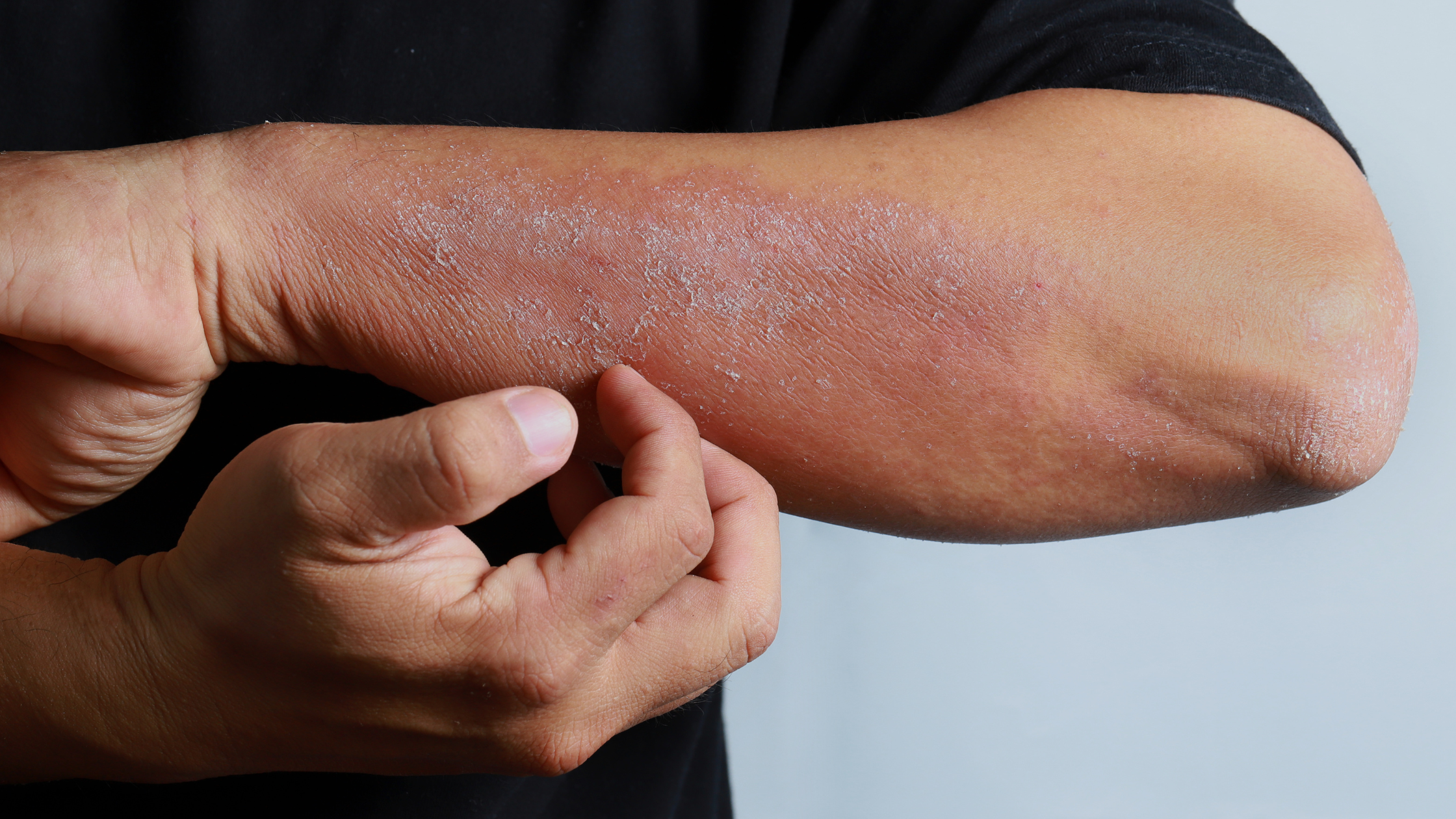
Sleep issues are very common in individuals with eczema. Eczema, or atopic dermatitis, is a dermatologic issue where one has itchy, inflamed, and irritated skin. The lack of sleep can actually make eczema worse, with about 47-80% of children and 33-87% of adults with eczema having problems falling or staying asleep.
Good sleep is very important for healthy brain function and general health. However, there are specific interactions between sleep and eczema that could help individuals who are struggling with both. Continue reading to learn why there is an interaction, and what you can do to assuage those problems.
The relationship between sleep and eczema
The relationship between sleep and eczema is bidirectional. This means that they both affect the other. It's also possible to have eczema and an unrelated sleep disorder. Eczema can affect your sleep, primarily because of the itching. Eczema is very itchy, especially when someone is having an allergy, or their skin is exceptionally dry. Itching is associated with poorer sleep and frequent, prolonged awakenings. Any scratching will keep the sleeper in early stages of sleep, leading to excessive daytime sleepiness, and other consequences of sleep deprivation.
Sleep problems can also affect eczema. Poor sleep can reduce immune function. Because eczema is primarily an immunologic process, reduced function and increased inflammation can cause worse flare ups.
Sleep issues caused by eczema
A study with more than 34,000 adults showed that eczema is related to many sleep problems, like insomnia. Having eczema may inhibit one's ability to fall asleep, increase the number of nighttime wakings, decrease the total amount of time sleep, increase daytime sleepiness, and increase fatigue. All of these effects can combine to make for a sleep deprived individual with low energy.
Sleep deprivation can increase your risk for heart disease, diabetes, obesity, memory problems, and an overall decrease in the quality of life.
Treatments for eczema-related sleep issues
Managing eczema is first in line for managing eczema-related sleep issues. Treatments include topical ointments, medications, and home remedies.
Topical ointments can really sooth the itching, which is a big contributor to eczema-related sleep problems. Using a topical ointment right before bed can reduce the risk of a nighttime full of scratching. The most common (and easiest to obtain) is a topical corticosteroid. Over the counter medications come in various strengths. If none of those work, talk with your doctor about getting a stronger prescription. The other option is topical calcineurin inhibitors, which is a prescription for severe eczema that has not responded to anything else.
Other medications are systemic, meaning you take them by mouth. These are for severe cases that do not respond to topical treatments, or cases of eczema with an additional bacterial infection. Immunosuppressants are both oral and injectable. They can dampen the immune response so it is not so strong, controlling flare ups. Oral corticosteroids are anti-inflammatories, and can reduce the inflammation associated with eczema. Antibiotics are medications that treat or prevent bacterial infections that can be introduced to the skin through scratching and breaking the skin. Antihistamines are allergy medications that can reduce the degree of allergic reaction.
There are some other non-medication options that you can whip up in your own home. Applying a type of moisturizer before bed, like vaseline, can help. Humidifiers in the room can help reduce the drying out of the skin, especially in the winter. Air conditioners in the summer can reduce sweating, which can also irritate the skin. Avoiding fragrances, or irritants that can break out the skin is helpful. Also, wearing pajamas that are breathable, like cotton, can reduce irritation, and allow the skin to breathe.
If you are struggling with sleep due to eczema, then please click the orange button to take a free online sleep test and talk with one of our sleep health professionals.
https://www.verywellhealth.com/eczema-and-sleep-6746112

